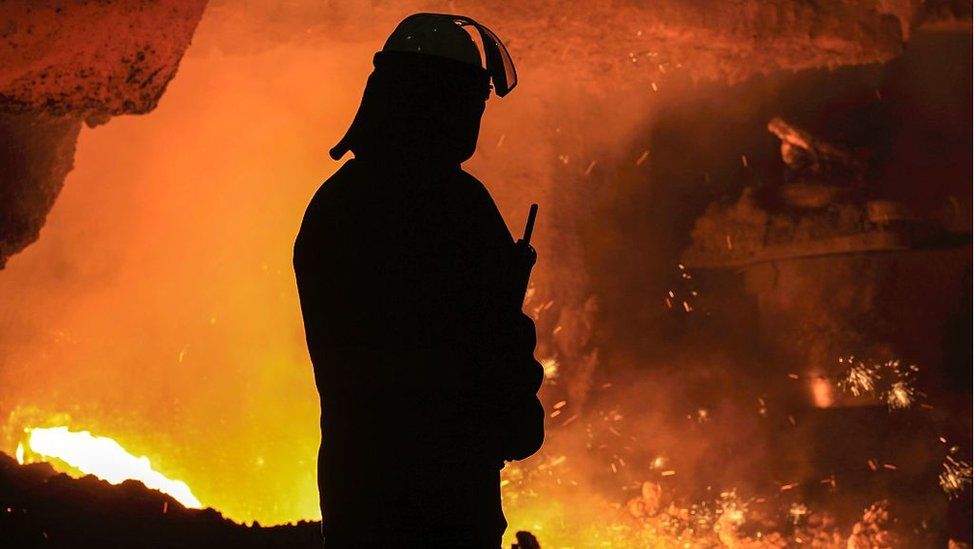On Wednesday, British Steel is anticipated to announce the closure of its coking ovens in Scunthorpe, resulting in the loss of 300 jobs.
Unknown are the closure's timing and the number of forced layoffs it will entail.
Coke, which burns at the higher temperature required for the two blast furnaces that are still in use, is made from coal using coking ovens.
British Steel will import coke as a result of the closure.
The closure of the coking ovens is considered to be a troubling sign for the UK steel industry.
The industry "is on a knife edge," union officials told the BBC.
Given that talks about a support package worth £300 million to each company are still being held between Tata, the Treasury, and the Chinese owners of British Steel, Jingye, government sources called the decision "disappointing.".
According to a spokesman for British Steel, "Unfortunately, like many other businesses, we are reluctantly considering cost cutting in light of the global recession and increased costs. ".
British Steel is "face[ing] significant challenges due to the economic slowdown, rising inflation, and exceptionally high energy prices," according to the spokesperson, despite Jingye's £330 million investment over three years and long-term commitment.
Internationally, the spokesperson continued, UK steelmaking is "uncompetitive.".
According to union sources, the government offers have been turned down so far because they have too many conditions, such as 10-year job guarantees.
They added that the offers are also too modest to assist with the estimated £2 billion cost of switching from less energy-efficient blast furnaces to electric arc furnaces.
Electric arc furnaces use recycled steel as fuel because they cannot burn at temperatures high enough to produce new steel. Right now, it is less expensive to ship scrap steel to Turkey and Indonesia than to recycle it locally.
While acknowledging the significance of the steel industry "in the communities in which they operate," Business Secretary Kemi Badenoch recently stated that the UK's need for a steel industry is "not a given.".
The closure could occur by the end of the year, according to reports, and discussions on how many voluntary and compulsory redundancies there will be start the following week.
Additional job losses throughout the plant are another concern.
British Steel was thinking about eliminating 800 jobs at its Scunthorpe plant at the start of February.
A Jingye representative called the government support discussions at the time "unsatisfactory.".
According to the representative, the proposed support package did not address the high costs of energy, labor, and carbon, as well as the weak domestic demand.







